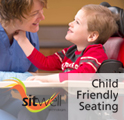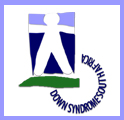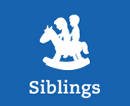Have you ever wondered why your anxious child expresses negative thoughts? These thoughts are called cognitive distortions. They are simple ways that our mind convinces us of something that isn’t really true. These inaccurate thoughts reinforce negative thinking or emotions and keep us feeling bad about ourselves.
By helping children learn to identify these types of thoughts, they can then learn to refute them or “fight back” against their anxiety. As the child refutes these thoughts over and over, they slowly diminish over time and are replaced by more rational and balanced thinking. You may recognize some of these cognitive distortions in your child’s thoughts or behaviours:
Filtering
The child takes the negative details and magnifies them while filtering out all positive aspects of a situation.
Polarized Thinking
Things are either “black-or-white.” The child believes they must be perfect or they are a failure – there is no middle ground. They also place other people or situations in “either/or” categories, with no shades of gray or allowing for the complexity of most relationships and experiences.
Over Generalization
A child comes to a general conclusion based on a single incident or piece of evidence. If something bad happens once, they expect it to happen over and over again. They may see a single, unpleasant event as a never-ending pattern of defeat.
Jumping to Conclusions
Without anyone telling them, a child believes they know what others are feeling and why they act the way they do. In particular, children usually try to determine how people are feeling toward them. For example, the child may conclude that someone is reacting negatively toward them without waiting to find out if they are correct.
Catastrophizing
A child will expect disaster to strike, no matter what. A child may hear about a problem and use excessive what if questions (e.g., “What if a tornado comes?” “What if I have to sleep alone in my room?”).
Personalization
The child believes that everything other does or says is some kind of reaction to them. They also compare themselves to others trying to determine who is smarter, better looking, etc.
Control Fallacies
The child may feel helpless or a victim of fate. For example, “I can’t help it if I got a bad grade on a test. My teacher does not like me anyway”. Or, the child may assume responsibility for the pain and happiness of others. For example, “Why are you sad? Is it because of something I did?”
Fallacy of Fairness.
The child may feel angry resentful because they think they know what is fair, but other people won’t agree with them. As a result, children often feel negatively about situations and other people.
Blaming.
The child holds other people responsible for their pain, or blames itself for every problem.
Shoulds.
The child has a strict list of rules about how others and themself should behave. People who break the rules make them angry, and the child feels guilty when they violate these rules
Emotional Reasoning.
The child believes that what they feel must be true automatically. If they feel stupid, then they must be stupid.
Global Labelling.
The child generalizes one or two qualities into a negative global judgment. For example, they may say, “I’m a loser” in a situation where they failed at a specific task. When someone else’s behaviour rubs them the wrong way, they may attach an unhealthy label to him, such as “He’s a real jerk.”
Always Being Right.
The child feels as if they are continually on trial to prove that their opinions and actions are correct. Being wrong is unthinkable and they will go to any length to demonstrate our rightness. Being right often becomes more important than the feelings of others.






























